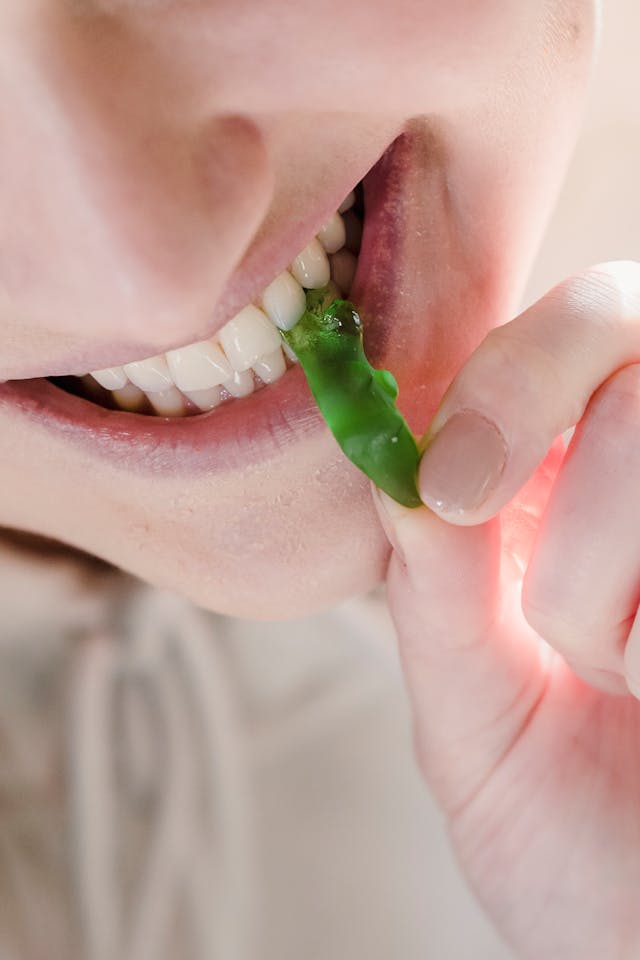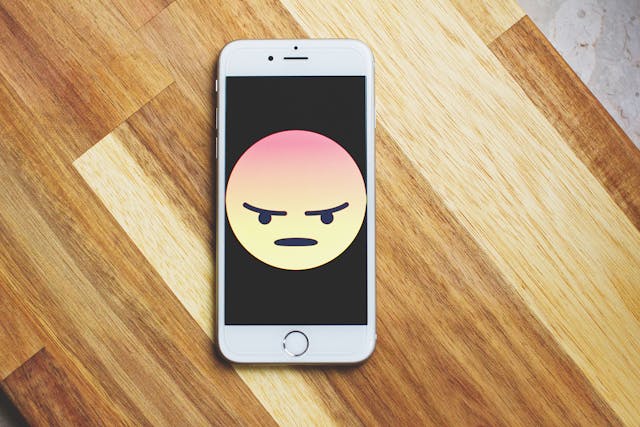 Stephen Geller Katz LCSW-R
Stephen Geller Katz LCSW-R
Misophonia Cognitive Retraining Therapy
 Stephen Geller Katz LCSW-R
Stephen Geller Katz LCSW-RMisophonia Cognitive Retraining Therapy
Misophonia Cognitive Retraining Therapy, as featured on the MTV True Life episode: “I Have Misophonia” premiering Friday, December 16th, 7:00 PM EST. See Clip >
|
|
|
| Moderate to severe anxiety triggered by chewing sounds, including: | ||
|
|
|
You may also be affected by visual stimuli, such as repetitive foot or body movements, fidgeting or movement you observe out of the corners of their eyes. Intense anxiety, rage and avoidant behavior may develop as a result of misophonia.
 * Do you feel your family and friends don’t understand how much you suffer?
* Do you feel your family and friends don’t understand how much you suffer?
* Do you often feel you can just suffer through a social event where there is eating present only to find that you must “escape” before you have a panic attack?
* Do you find that some people are at first understanding and make some efforts not to make the triggering sounds in front of you, but soon forget and constantly have to be reminded, causing you to feel angry, anxious and depressed?
* Are you avoiding social activities that you enjoy because of the misophonia?
* Are you fearful of losing your job and/or is the misophonia effecting your job performance?
You may be a candidate for Misophonia Cognitive Retraining Therapy, or MCRT.
Stephen Geller Katz, LCSW-R, with over 20 years of clinical experience, a New York University graduate, developed Misophonia Cognitive Retraining Therapy and founded Misophonia Cognitive Center™ in response to the growing number of people with Misophonia coming to his private practice from audiologists and ENTs. He discovered that by helping people to retrain and reinterpret the thoughts around their Misophonia, anxiety and depression symptoms began to improve. But even more important so did the Misophonic trigger response.
In this blog, we’ll explore some of the most common misophonia triggers and outline practical strategies to manage them. Misophonia is a sound sensitivity condition where certain everyday noises provoke intense emotional responses, such as anger, panic, or disgust. These sounds, known as “triggers,” vary from person to person but often involve human-generated, repetitive noises. For people living with misophonia, these triggers can significantly impact quality of life—at work, in relationships, and in public spaces.

Triggers are specific sounds that cause an overwhelming emotional or physical reaction. These reactions may feel automatic and are often disproportionate to the situation. For many people with misophonia, it’s not just the sound itself, but the context or the person making the sound that heightens the response.
 Below are the types of sounds frequently reported as misophonia triggers:
Below are the types of sounds frequently reported as misophonia triggers:
The root cause of misophonia is still being researched, but studies show that people with the condition have heightened activity in areas of the brain responsible for emotion regulation and threat detection—particularly the anterior insular cortex. This suggests that misophonia may be a neurological response where the brain misinterprets certain benign sounds as threats.
Managing misophonia requires a combination of environmental adjustments, mental health strategies, and in some cases, professional treatment. Here are some effective techniques:

If triggers are significantly affecting your quality of life, it’s time to consult a specialist in misophonia treatment. Professional support can help you develop personalized strategies to manage your triggers, regain control, and reduce emotional distress.
Stephen Geller Katz, LCSW-R, is a leading specialist in misophonia treatment and the founder of the Misophonia Cognitive Center™. His targeted approach, including Cognitive Retraining Therapy and mindfulness-based techniques, helps clients manage their sound triggers effectively.
Dr. Katz offers fully remote therapy sessions, so you can receive expert care from anywhere in the world. He also speaks five languages, making treatment more accessible for diverse individuals.
MISOPHONIA COGNITIVE CENTER™
Stephen Geller Katz LCSW-R
19 West 34th Street
Penthouse Floor
New York, NY 10001
646-585-2251
 Can cognitive retraining therapy help to relieve misophonia symptoms? Misophonia, defined by extreme emotional reactions to specific sounds, can significantly affect daily life—impacting relationships, work, education, and mental health. While many coping strategies offer temporary relief, long-term improvement often requires a targeted therapeutic approach. One of the most promising and structured treatment methods is Misophonia Cognitive Retraining Therapy (MCRT), a specialized form of therapy developed to help individuals retrain their brain’s response to trigger sounds.
Can cognitive retraining therapy help to relieve misophonia symptoms? Misophonia, defined by extreme emotional reactions to specific sounds, can significantly affect daily life—impacting relationships, work, education, and mental health. While many coping strategies offer temporary relief, long-term improvement often requires a targeted therapeutic approach. One of the most promising and structured treatment methods is Misophonia Cognitive Retraining Therapy (MCRT), a specialized form of therapy developed to help individuals retrain their brain’s response to trigger sounds.
In this blog, we’ll explore how Misophonia Cognitive Retraining Therapy works, why it’s effective, and how it can help you regain control over your life.
Misophonia Cognitive Retraining Therapy is a structured, multi-faceted therapeutic program that combines elements of cognitive-behavioral therapy (CBT), exposure therapy, and emotional regulation training. MCRT is designed specifically for misophonia and targets the neurological and emotional pathways that fuel the distressing responses to certain sounds.
Rather than simply teaching patients to avoid triggers, MCRT aims to desensitize emotional reactions and reprogram how the brain associates and interprets sound stimuli.
Scientific research suggests that individuals with misophonia experience hyperactivation in the anterior insular cortex, a part of the brain associated with emotional salience and autonomic response. MCRT leverages the brain’s natural neuroplasticity—its ability to form new neural connections—to retrain how it reacts to certain sounds.
By consistently practicing the therapeutic exercises in MCRT, patients begin to form new emotional associations, reduce anticipatory anxiety, and diminish the intensity of sound-triggered responses over time.
MCRT offers several unique benefits that make it one of the most effective misophonia treatments currently available:
MCRT is suitable for children, teens, and adults struggling with misophonia. Whether your symptoms are mild or severe, this therapy is designed to be adaptable to your needs. It’s particularly helpful for individuals who feel their condition has led to social isolation, work impairment, or chronic anxiety and frustration.
Stephen Geller Katz, LCSW-R, at the Misophonia Cognitive Center™, is a pioneer in misophonia treatment and has successfully helped patients worldwide using MCRT. With decades of experience and a compassionate, client-centered approach, Dr. Katz understands the unique challenges misophonia presents—and how to overcome them.
He offers fully online therapy sessions, allowing you to access expert treatment no matter where you live. Dr. Katz also speaks five languages, ensuring a supportive and personalized experience for clients from diverse backgrounds.
Misophonia doesn’t have to define your life. With the right tools and guidance, you can reduce your sensitivity to triggers, reclaim peace of mind, and improve your relationships and daily functioning. Misophonia Cognitive Retraining Therapy is a scientifically informed, results-oriented approach that’s helping people around the world live better.
Ready to begin your journey toward relief?
MISOPHONIA COGNITIVE CENTER™
Stephen Geller Katz LCSW-R
19 West 34th Street
New York, NY 10001
646-585-2251
All sessions are online
How can we go about understanding the basics of misophonia? Misophonia is a complex and often misunderstood condition characterized by strong emotional and physiological reactions to specific sounds, commonly known as “trigger sounds.” These responses are not just mild annoyances—individuals with misophonia may experience intense anger, anxiety, panic, or even rage when exposed to certain noises. Though it remains underdiagnosed, awareness and research around misophonia are steadily growing, leading to more understanding and better treatment options.
 a
a
The term “misophonia” translates to “hatred of sound,” though sufferers don’t dislike all sounds—only specific ones that trigger a disproportionate emotional response. These triggers are often repetitive, human-generated sounds such as chewing, breathing, pen clicking, or throat clearing.
Misophonia is not classified as a hearing disorder, nor is it a psychiatric condition in the traditional sense. It is more accurately described as a neurophysiological response, wherein specific sounds are processed differently in the brain, particularly in areas associated with emotional regulation.
Misophonia triggers vary from person to person, but there are certain sounds that tend to be more commonly reported. Some of these include:
Interestingly, for many people, it’s not just the sound itself but the context that makes it worse—such as a specific person making the sound, or being in a quiet environment where the sound is more pronounced.
Misophonia can lead to a range of emotional and physical symptoms. These responses may begin suddenly and escalate quickly. Common symptoms include:
For some individuals, these reactions can severely impact social life, academic performance, work productivity, and even relationships.
The exact cause of misophonia is still being studied, but research suggests several potential contributing factors:
Currently, misophonia is not listed as a formal diagnosis in major diagnostic manuals such as the DSM-5. This can make getting a proper diagnosis difficult. Many individuals are misdiagnosed with anxiety disorders, OCD, or other mental health conditions, although they may experience overlapping symptoms.
Nonetheless, growing awareness has led to better identification of the condition by therapists who specialize in sensory and sound-related disorders.
Living with misophonia presents daily challenges, but there are several strategies that can make life more manageable:
Additionally, explaining misophonia to loved ones and coworkers can foster understanding and create more accommodating environments.
While there is no definitive cure for misophonia, there are effective treatments available that focus on managing the symptoms and reducing emotional reactivity:
If you’re struggling with misophonia, professional help can make a life-changing difference. Stephen Geller Katz, LCSW-R, is a licensed therapist and director of the Misophonia Cognitive Center™ in New York City. Dr. Katz specializes in misophonia treatment and offers personalized online sessions to help patients understand and manage their symptoms effectively.
All sessions are offered online, and Dr. Katz speaks five languages, making treatment accessible and convenient.
MISOPHONIA COGNITIVE CENTER™
Stephen Geller Katz LCSW-R
19 West 34th Street
New York, NY 10001
646-585-2251
 Cognitive Behavioral Therapy (CBT) has long been a cornerstone in the treatment of various psychological conditions, including misophonia. Misophonia, characterized by intense emotional reactions to specific sounds, can severely impact an individual’s quality of life. Recent advances in CBT have further enhanced its efficacy in managing misophonia, offering new hope for those affected by this condition.
Cognitive Behavioral Therapy (CBT) has long been a cornerstone in the treatment of various psychological conditions, including misophonia. Misophonia, characterized by intense emotional reactions to specific sounds, can severely impact an individual’s quality of life. Recent advances in CBT have further enhanced its efficacy in managing misophonia, offering new hope for those affected by this condition.
Misophonia involves adverse emotional reactions to certain trigger sounds, such as chewing, tapping, or breathing. These reactions can range from irritation and anxiety to anger and panic. CBT focuses on identifying and changing negative thought patterns and behaviors associated with these reactions. Traditional CBT techniques have been adapted and improved to better address the unique challenges posed by misophonia.
Recent research and clinical practice have led to several notable advances in the application of CBT for misophonia. These advances include specialized therapeutic techniques, integration with other therapies, and the use of technology to enhance treatment outcomes.
Traditional CBT involves several core components, including cognitive restructuring, exposure therapy, and the development of coping skills. For misophonia, these techniques have been tailored to specifically address sound triggers and the associated emotional responses.
CBT for misophonia has increasingly been integrated with other therapeutic approaches to enhance its effectiveness. These combined therapies address both the cognitive and physiological aspects of misophonia.
The use of technology in CBT for misophonia has opened new avenues for treatment and support. Digital tools and online platforms have made CBT more accessible and flexible for individuals with misophonia.

Recent studies have demonstrated the effectiveness of these advanced CBT techniques for misophonia. For instance, a study published in the Journal of Anxiety Disorders found that CBT, particularly when combined with mindfulness practices, significantly reduced the severity of misophonia symptoms and improved overall quality of life. Similarly, research from the Journal of Clinical Psychology highlighted the benefits of integrating ACT with traditional CBT approaches for managing misophonia.
Advances in Cognitive Behavioral Therapy have significantly improved the treatment of misophonia. Specialized CBT techniques, integration with mindfulness and acceptance therapies, and the use of technology have enhanced the efficacy of this approach, providing new hope for those affected by misophonia.
For personalized treatment, Stephen Katz at the Misophonia Cognitive Center™ offers specialized online therapy services to help individuals manage misophonia effectively.
MISOPHONIA COGNITIVE CENTER™
Stephen Katz LCSW
646-598-2251
Online sessions
Misophonia, characterized by strong emotional reactions to specific sounds, can significantly strain relationships. The condition, often misunderstood by those without it, can lead to frustration, misunderstanding, and emotional distress for both the individual with misophonia and their loved ones. However, with understanding, communication, and effective strategies, it is possible to manage the impact of misophonia on relationships.

Misophonia involves adverse reactions to everyday sounds such as chewing, tapping, or breathing. These sounds, known as triggers, can provoke intense emotional responses, including anger, anxiety, and the urge to flee the situation. For individuals with misophonia, these responses are involuntary and can significantly disrupt daily life and social interactions.
Misophonia can place significant stress on relationships. The emotional reactions to trigger sounds can cause tension, misunderstandings, and conflicts, leading to strained relationships with family, friends, and partners.
While misophonia can significantly impact relationships, several strategies can help manage its effects and improve communication and understanding.
Seeking professional support can provide additional strategies and tools for managing misophonia.

Misophonia can have a profound impact on relationships, but with understanding, open communication, and effective strategies, it is possible to manage its effects. Educating loved ones about the condition, creating a supportive environment, developing coping mechanisms, and seeking professional support are all essential steps in managing misophonia in relationships.
Dr. Stephen Katz at the Misophonia Cognitive Center™ offers specialized online treatment services to help individuals and their families navigate the challenges of misophonia.
MISOPHONIA COGNITIVE CENTER™
Stephen Geller Katz, LCSW
646-598-2251
For more information about Dr. Katz and his treatment services, visit https://www.misophoniacognitivecenter.com/.

Misophonia, a condition characterized by strong emotional reactions to specific sounds, can have a profound impact on an individual’s mental health. This condition, often misunderstood and underdiagnosed, can lead to significant emotional distress, anxiety, and social isolation. Understanding the impact of misophonia on mental health is crucial for developing effective coping strategies and treatment plans.
Misophonia involves intense emotional reactions to certain sounds, commonly referred to as trigger sounds. These sounds often include everyday noises such as chewing, breathing, tapping, or clicking. The reactions to these triggers can range from irritation and anger to panic and severe anxiety. For individuals with misophonia, these responses are involuntary and can significantly disrupt daily life.
One of the most immediate impacts of misophonia is the emotional distress it causes. The constant anticipation of encountering trigger sounds can lead to heightened anxiety and stress. Individuals with misophonia often feel overwhelmed by their inability to control their reactions to these sounds, leading to feelings of frustration and helplessness.
Misophonia can severely impact social interactions and relationships. The need to avoid trigger sounds often leads individuals to withdraw from social activities, further exacerbating feelings of loneliness and isolation.
The intense reactions to trigger sounds can create tension in interpersonal relationships. Loved ones may feel confused or hurt by the seemingly disproportionate reactions to everyday sounds. Effective communication and education about misophonia are essential for maintaining healthy relationships and ensuring that loved ones understand the condition and its impact.
Misophonia can also affect an individual’s professional life. The presence of trigger sounds in the workplace can lead to decreased productivity, increased stress, and strained relationships with colleagues.
 Addressing the mental health impact of misophonia requires a comprehensive approach that includes coping strategies and professional treatment.
Addressing the mental health impact of misophonia requires a comprehensive approach that includes coping strategies and professional treatment.
For more information on CBT, visit the American Psychological Association. Learn about mindfulness and relaxation techniques from the Mindfulness-Based Stress Reduction (MBSR) Program.
Misophonia can have a profound impact on mental health, leading to emotional distress, social isolation, and occupational challenges. Understanding the condition and implementing effective coping strategies are essential for managing its effects.
For specialized treatment and support, Dr. Stephen Katz at the Misophonia Cognitive Center™ offers comprehensive online therapy services tailored to help individuals navigate the challenges of misophonia.
MISOPHONIA COGNITIVE CENTER™
Stephen Katz LCSW
646-598-2251
Convenient online sessions
Dr. Katz is multi-lingual
For more information about Dr. Katz and his treatment services, visit https://www.misophoniacognitivecenter.com/.
What are some technological aids most effectively used for managing misophonia? This condition, characterized by strong emotional reactions to specific sounds, can be very challenging to live with. However, technological aids have emerged as effective tools to help individuals cope with their triggers. Here, we explore various technological solutions designed to alleviate the symptoms of misophonia and improve quality of life.

Noise-canceling headphones are among the most popular and effective technological aids for managing misophonia. These headphones use active noise cancellation technology to reduce background noise, making it easier for individuals to focus and relax without being disturbed by trigger sounds.
Sound masking devices emit background noise that can help mask trigger sounds, creating a more pleasant auditory environment. These devices can be particularly useful in home or office settings.
Personal sound amplifiers can be used to amplify surrounding sounds, making it easier to hear desired sounds while reducing the impact of trigger noises. These devices are often used by individuals with hearing impairments but can also benefit those with misophonia.
Personal sound amplifiers can help individuals focus on specific sounds, such as a conversation in a noisy environment, by amplifying the desired sounds and reducing background noise. This selective amplification can make it easier to manage misophonia triggers in social and professional settings.
Several smartphone applications are designed specifically to help individuals manage misophonia. These apps offer various features, including sound therapy, relaxation exercises, and tracking tools.

Technological aids such as noise-canceling headphones, sound masking devices, personal sound amplifiers, and smartphone applications can provide significant relief for individuals with misophonia. By integrating these tools into daily life, individuals can better manage their symptoms and improve their overall quality of life.
With over 15 years of experience, Stephen Geller Katz at the Misophonia Cognitive Center™ is an expert in treating misophonia. Call today for a consultation.
MISOPHONIA COGNITIVE CENTER™
Stephen Katz LCSW
646-598-2251
Online sessions
Multi-lingual
Supporting a loved one with misophonia can be challenging, but understanding the condition and implementing effective strategies can make a significant difference. Misophonia, characterized by strong emotional reactions to specific sounds, can cause significant distress. Here are some practical ways to support someone dealing with misophonia.

Understanding misophonia is the first step in providing effective support. Misophonia involves adverse reactions to everyday sounds like chewing, tapping, or breathing. These sounds can trigger intense emotional responses such as anger, anxiety, or the urge to escape the situation. By learning about the condition, you can better empathize with your loved one’s experiences and challenges.
Open communication is crucial for supporting someone with misophonia. Encourage your loved one to share their experiences and triggers with you. Listen actively and validate their feelings without judgment. Understanding their specific triggers can help you avoid making those sounds and reduce their distress.
Making changes to the environment can significantly reduce misophonia triggers. Here are some practical steps:
Helping your loved one develop healthy coping mechanisms can improve their ability to manage misophonia. Some effective strategies include:

Professional help can provide additional support and effective treatment strategies. Various therapeutic approaches have shown promise in managing misophonia:
Living with misophonia can be incredibly frustrating and isolating. Patience and empathy are essential in providing ongoing support. Recognize that misophonia is a real and challenging condition, and offer your love and understanding. Small gestures of kindness and support can make a significant difference in your loved one’s ability to cope.
Supporting a loved one with misophonia involves understanding the condition, communicating openly, modifying the environment, encouraging healthy coping mechanisms, seeking professional help, and practicing patience and empathy. By implementing these strategies, you can help your loved one manage their symptoms and improve their quality of life.
Dr. Stephen Katz at the Misophonia Cognitive Center™ offers specialized online treatment services to help individuals and their families navigate the challenges of misophonia.
Call today for an expert consultation.
Stephen Geller Katz, LCSW
646-598-2251
• Convenient online sessions
• Dr. Katz is multi-lingual
 What is the role of therapy for misophonia treatment? Misophonia, a condition characterized by strong emotional reactions to specific sounds, significantly affects individuals’ quality of life. Therapy plays a crucial role in the treatment of misophonia, offering strategies and tools to manage and mitigate symptoms. This blog explores various therapeutic approaches, their benefits, and how they can be integrated into a comprehensive treatment plan.
What is the role of therapy for misophonia treatment? Misophonia, a condition characterized by strong emotional reactions to specific sounds, significantly affects individuals’ quality of life. Therapy plays a crucial role in the treatment of misophonia, offering strategies and tools to manage and mitigate symptoms. This blog explores various therapeutic approaches, their benefits, and how they can be integrated into a comprehensive treatment plan.
Misophonia involves adverse reactions to everyday sounds such as chewing, tapping, or breathing. These sounds, known as triggers, can provoke intense emotional responses, including anger, anxiety, and the urge to flee the situation. The impact of misophonia on daily life can be profound, making effective treatment essential.
Cognitive Behavioral Therapy (CBT) is one of the most widely used therapeutic approaches for misophonia. CBT focuses on changing the negative thought patterns and behaviors associated with the condition.
CBT also involves exposure therapy, where individuals are gradually exposed to trigger sounds in a controlled environment. This exposure helps desensitize them to the sounds, reducing the severity of their reactions over time. Studies have shown that CBT can be highly effective in managing misophonia symptoms, improving overall emotional well-being.
Mindfulness-Based Stress Reduction (MBSR) is another therapeutic approach that can be beneficial for individuals with misophonia. MBSR combines mindfulness meditation and yoga to help individuals develop a greater awareness of their thoughts, feelings, and bodily sensations.
MBSR helps individuals with misophonia by promoting relaxation and reducing stress. Mindfulness techniques teach individuals to focus on the present moment and accept their experiences without judgment. This can reduce the intensity of emotional reactions to trigger sounds and improve overall coping mechanisms.
Practicing mindfulness can also enhance emotional regulation, making it easier for individuals to manage their responses to misophonia triggers. Regular mindfulness practice has been associated with decreased anxiety and improved mental health, making it a valuable tool in the treatment of misophonia.
Exposure therapy is a key component of both CBT and standalone treatment for misophonia. The goal of exposure therapy is to reduce the individual’s sensitivity to trigger sounds through gradual, controlled exposure.
Exposure therapy involves creating a hierarchy of trigger sounds, starting with those that cause the least distress. The individual is gradually exposed to these sounds while practicing relaxation techniques. Over time, the exposure is increased to include more distressing triggers. This process helps desensitize the individual to the sounds, reducing their emotional response.

A study published in the Journal of Anxiety Disorders found that exposure therapy can significantly reduce the severity of misophonia symptoms, leading to improved quality of life. You can read more about this study here: https://www.ncbi.nlm.nih.gov/pmc/articles/PMC10276561/.
Acceptance and Commitment Therapy (ACT) is another therapeutic approach that can be effective for managing misophonia. ACT encourages individuals to accept their experiences and commit to actions that align with their values.
ACT uses mindfulness and behavioral strategies to help individuals accept their misophonia triggers without attempting to control or avoid them. Instead of focusing on eliminating the triggers, ACT helps individuals live a meaningful life despite their condition. This approach can reduce the emotional impact of misophonia and improve overall well-being.
Therapy plays a vital role in the treatment of misophonia, offering various strategies to manage symptoms and improve quality of life. Cognitive Behavioral Therapy, Mindfulness-Based Stress Reduction, Exposure Therapy, and Acceptance and Commitment Therapy are all effective approaches that can be tailored to individual needs.
For personalized treatment, Dr. Stephen Katz (bio) at the Misophonia Cognitive Center™ offers specialized therapy services to help individuals manage misophonia effectively. Dr. Katz is an expert in CBT and other effective therapies for misophonia treatment.
MISOPHONIA COGNITIVE CENTER™
Stephen Geller Katz, LCSW
646-598-2251
• Convenient online sessions
• Dr. Katz is multi-lingual
For more information about Dr. Katz and his treatment services, visit https://www.misophoniacognitivecenter.com/.
Here are some daily management tips for misophonia that can help individuals cope with their triggers and reduce the emotional impact of this condition. Managing misophonia on a daily basis can be challenging, but implementing effective strategies can significantly improve quality of life.

Misophonia, a condition characterized by strong emotional reactions to specific sounds, can disrupt daily activities and interactions. These reactions can range from irritation to intense anger or panic. Understanding the nature of misophonia and how it affects you is the first step in developing effective management strategies.
One of the most effective ways to manage misophonia is to create a controlled environment. This involves minimizing exposure to trigger sounds and creating a safe, comfortable space.
Having a set of coping mechanisms can help you manage your reactions to trigger sounds more effectively.
Effective communication with family, friends, and colleagues is essential for managing misophonia. Educating others about your condition can help them understand and support you better.

Seeking professional treatment can provide long-term strategies and tools for managing misophonia.
Daily management of misophonia involves a combination of creating a controlled environment, developing coping mechanisms, communicating effectively with others, and seeking professional treatment. By implementing these strategies, individuals with misophonia can improve their quality of life and reduce the impact of trigger sounds.
Misophonia treatment specialist Stephen Geller Katz at the Misophonia Cognitive Center™ offers specialized online treatment services to help individuals manage misophonia.
Stephen Katz, LCSW
646-598-2251
• Convenient online sessions
• Dr. Katz is multi-lingual
For more information about Dr. Katz and his Misophonia & Tinnitus treatment services, visit https://www.misophoniacognitivecenter.com/.